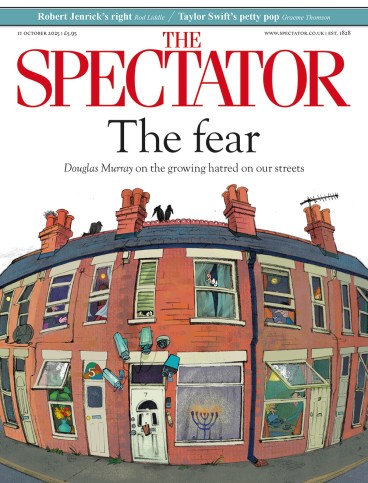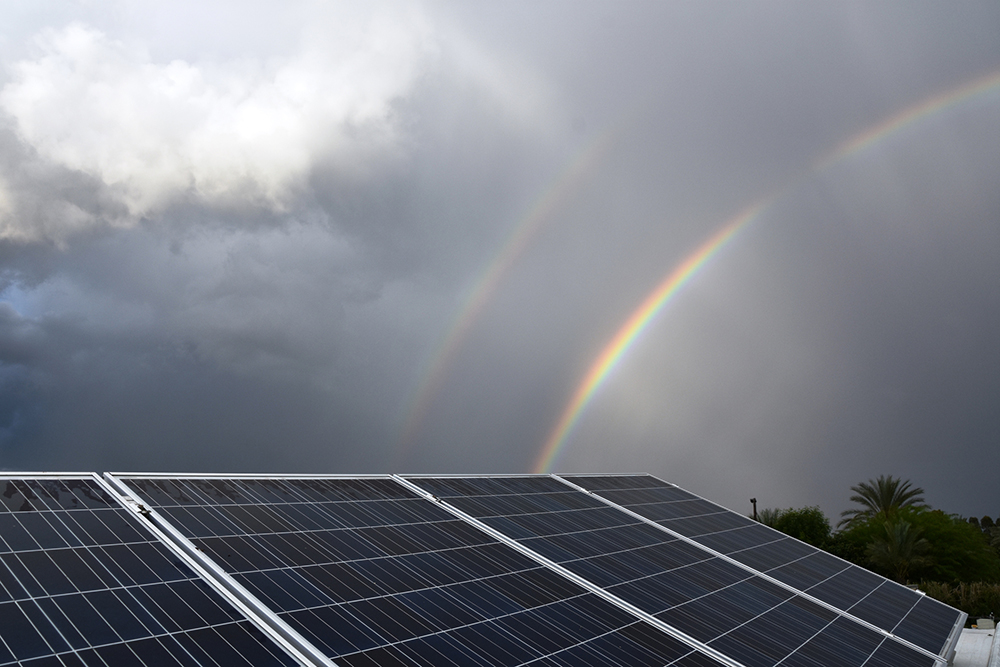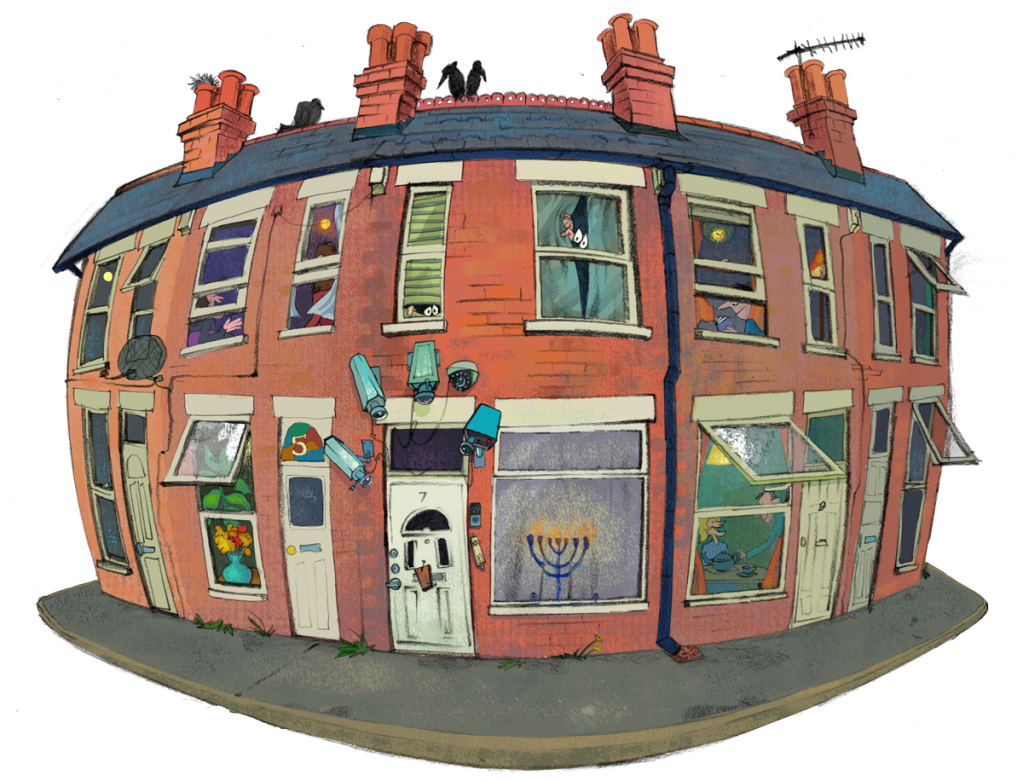
The house fell silent as the last of the tourists took their oat milk and pretend cheese from the guest fridge.
Winter came in the nick of time. I’ve bitten my lip for six months while the B&B guests have forced their pro-Palestine, anti-Trump views on me, while refusing to eat normal food or use the dishwasher because, in leftie parlance, dishwashers cause neurological damage.
‘What does the shower cause?’ I wanted to ask some of them, who didn’t even use one towel or open one wrapped mini-soap in a week-long stay. Is soap carcinogenic now? Are you staging some sort of Gaza protest by not washing?
The bookings dried up just before I lost it completely with the next long-haired hipster asking for coconut milk or declaring themselves gluten-free.
I was ready to start beating my car with a tree branch by the time the last of them checked out, and we were just left with the solar-panel fitter, booked in for two weeks while he fits panels to a house on a large country estate down the road. He works all day in the driving rain and returns at night drenched and exhausted.
We’ve been in a white-out of squally storms for the past week, and solar guy is unable to explain how his clients will be powering their house off the eye-wateringly expensive equipment he has fitted.
‘It all works beautifully,’ he announced, coming back in his day-glo work anorak the other day, and sitting down at the kitchen table to a plate of his favourite jumbo sausage rolls.
But when I asked whether that meant the millionaire’s house would be powered by solar, he pulled a face. ‘I mean the system works, as in I’ve wired it all up correctly,’ he said, munching. Then he laughed, as though the next bit was obvious: ‘But it won’t produce any power without direct sunlight, obviously.’ And at that moment the wind howled, and we all stared out the kitchen patio door at the driving rain and the thick soup of a turbulent sky.
The weather comes pounding off the sea here, and while there are sunny days, it’s hard to remember a time when there was a run of them together.
Rain and sun, rain and sun, rain and sun all summer, that’s Ireland. And in the winter, it’s like living in a bowl of mushroom chowder. There are days when you come out the door and you can’t see a few feet in front of you.
But despite the almost permanent lack of direct sunlight, Ireland is mad for solar energy. Incentives galore scream at you from advertising hoardings, and roofs everywhere get clad in shiny panels so they can be pounded by the endless rain.
It’s all because Ireland burns so much fossil fuel and oil to keep itself warm that the government has had to tell its EU masters it’s going to be a good boy and do some green stuff. Nearly all new-build houses aren’t allowed a chimney or an oil boiler. Everyone must go electric. The only problem is, there’s no sun. The solar-panel fitter estimated that his clients might get some electricity from their 50-panel system for four or five months of the year. But that didn’t matter, he said. Because they’ve got a big diesel generator for when there’s no sun. And she’s plugging her washing machine and tumble dryer into an electrical point connected to the grid in a farm outbuilding.
Also, they have another house down the road they can go to in bad weather and that’s on the grid. Of course they do. What was I thinking? These people aren’t amateurs.
The solar-panel fitter was still munching philosophically because to him it’s all par for the course. He deals with this nonsense every day. It’s his bread and butter to come up with hair-brained systems that don’t work except in theory. He’s not going to point out the lunacy of trying to make power out of sunlight that isn’t there.
The solar-panel fitter himself lives in a bus which he powers with solar, but a bus is small enough to do that, and also he uses wood burners.
Another issue he’s discovered, he said, was that you need somewhere to dump all the excess solar energy you get on sunny days because once you’ve used what you need you can’t store the rest.
The way he deals with this is by having a big hot tub in his back yard which he heats constantly on sunny days. ‘That’s nice,’ I said. ‘I bet you and your wife enjoy that.’
Not really, he said. They didn’t use the hot tub much, because you want it on cold days, not hot ones, and on cold days there isn’t any solar power.
But at least it meant he was dumping all his free energy back into his own property, rather than selling it back to the grid at an extortionately bad rate.
I said that all things considered, I didn’t want solar panels. He said I could suit myself, and he shrugged.
But he nodded to the kitchen light bulbs, tutting, and told me we must at least switch to LEDs. I told him our electricity bill is very low, because we don’t leave lights on. Even with the B&B guests, at the height of summer, in a six-bedroom house full of people, our bill was barely £100 a month. And in winter when the guests are gone it’s half that. The builder boyfriend has this wacky idea, I explained, that if we just use less it will cost less money, and do less environmental damage.
Solar guy kept sucking air through his teeth and shaking his head and warning us that unless we got warm white LEDs we’d be sorry.
As it happened, I got up in the middle of the night to get a glass of water and saw that he’d left his bedroom light on, and was snoring away with his room fully lit.








Comments